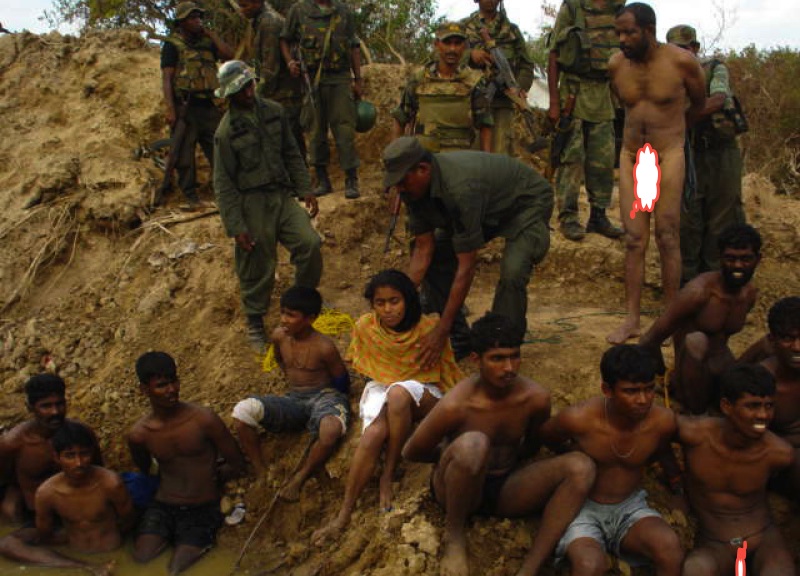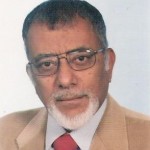A Brief Colonial History Of Ceylon(SriLanka)
Sri Lanka: One Island Two Nations
A Brief Colonial History Of Ceylon(SriLanka)
Sri Lanka: One Island Two Nations
(Full Story)
Search This Blog
Back to 500BC.
==========================
Thiranjala Weerasinghe sj.- One Island Two Nations
?????????????????????????????????????????????????Wednesday, March 20, 2019
On ‘Reading’ A Picture
 “The
saying that a picture is worth a thousand words refers to the notion
that a complex idea can be conveyed with just a single picture.” This
particular picture appeared in ‘Colombo Telegraph’ on 12 Feb. 2019; I
shared my reaction privately with some of my contacts including, as a
courtesy, Colombo Telegraph Editor who suggested that I rework the
material with the possibility of it being uploaded. Unsatisfactory
health has hindered an earlier response. In philosophy, an ‘essential’
is a quality that something must have
for it to be what it is while an ‘accidental’ is one that it happens to
have but could lack. In what follows, that the men in uniform are
Sinhalese and the prisoners Tamil is accidental. In other words, what I
attempt here is a modest, general investigation and reflection.
“The
saying that a picture is worth a thousand words refers to the notion
that a complex idea can be conveyed with just a single picture.” This
particular picture appeared in ‘Colombo Telegraph’ on 12 Feb. 2019; I
shared my reaction privately with some of my contacts including, as a
courtesy, Colombo Telegraph Editor who suggested that I rework the
material with the possibility of it being uploaded. Unsatisfactory
health has hindered an earlier response. In philosophy, an ‘essential’
is a quality that something must have
for it to be what it is while an ‘accidental’ is one that it happens to
have but could lack. In what follows, that the men in uniform are
Sinhalese and the prisoners Tamil is accidental. In other words, what I
attempt here is a modest, general investigation and reflection.
Looking at the picture (rather than cursorily glancing at it) what draws
immediate attention is the young woman or girl because (a) she happens
to be almost at the centre of the picture and (b) is the only female.
The naked man on the right seems to stare at her with concern,
apparently resigned to his nakedness, and indifferent to the fact that a
soldier behind him is, presumably, tightening the rope that binds him.
Did he know her? Was she a much-loved relation? The nine prisoners, all
stripped to their underwear (the one on the extreme right is naked)
hands tied behind their back, three of them knee-deep in muddy water,
have their attention focused on something to their left. At whom or what
are they staring? What comes their way? The boy on the female’s
immediate right stares in the opposite direction. The prisoner standing,
his nakedness edited by Colombo Telegraph to preserve a modicum of
decency, seems to be more concerned about the female than with his own
“shameless” condition.
In the foreground of the picture are the nine males and one female; the
middle ground of the picture has two soldiers and the naked man. A
somewhat portly soldier bends over the young woman, preparing to lift
her up. Her face is devoid of all feeling, expression or reaction: a
mixture of extreme exhaustion and resignation? Indeed, her left foot is
slightly raised as if to help in standing up. Why was she singled out?
What was done to her? What she endured is not to be contemplated:
torture, gang-rape and murder? De profundis clamavi (Psalm 130: “Out of the depths have I cried unto thee”) but her cry probably only fuelled further sadism and triumphant jeers.
The background of soldiers fully clothed and armed provides a contrast
to the prisoners’ nakedness. The soldiers are relaxed: what’s being
done, and is about to be done, is nothing exceptional. What’s calamity
and death to the prisoners is a casual matter to them. The second
soldier in the middle-ground seems to ask his comrade-in-arms: “Need any
help in lifting her up?” My
wife wondered about the person we don’t see: the photographer. What was
his motive in taking this picture? Was it deep compassion and high
moral condemnation or congratulation, as proud hunters record themselves
with their trophy? “See what we’ve done! Aren’t we great?” Louder, the
applause!
Moving now to more general considerations, if prisoners are going to be
killed why are they, not infrequently, stripped naked? Why humiliate
those whom you are anyway about to “eliminate”? Neither space nor my
competence enable me to be comprehensive but I offer a few possible
explanations. Enforced nakedness brings home to the prisoner his or her
utter helplessness; his or her total vulnerability. It removes any
thought of resistance or even of escape. On the other hand, it gives the
captors a sense of their god-like power. Lord Acton (1834-1902) wrote
that power tends to corrupt and absolute power corrupts absolutely: in
this picture we
have a visual illustration of that truth. Reflecting further, I was
reminded of Franz Stangl, commandant of the Nazi extermination camps at
Treblinka and Sobibor. Note: unlike concentration camps where inmates
were forced to work until they could no more, Stangl was in charge of
camps established for the express purpose of extermination. At war’s
end, he fled to Brazil, was brought back to what was then West Germany;
tried, sentenced and died in prison. When asked why humiliation and
cruelty were heaped upon those who were soon going to be killed,
Stangl’s answer was on the lines of so as to make it possible,
psychologically and emotionally, for the soldiers to do what they did:
Gitta Sereny, ‘Into that Darkness: An Examination of Conscience’, Vintage Books Edition, 1983, p.101. Here and elsewhere, I draw on my review of a very perceptive and powerful work, Worse Than War, by Daniel Goldhagen, Professor of Political Science for many years at the University of Harvard. The review is included in my Public Writings on Sri Lanka, Volume
2. War is terrible but more horrible is what Goldhagen terms
“eliminationism” and its eliminationist policies and actions.
Stangl’s reply shows, among other things, how we degrade our fellow
human beings and then use that degraded condition to justify degrading
treatment: see, at random, the plight of “natives” under imperialism, of
slaves, of the so-called “coolies” on estates and the so-called
Untouchables in their hovels. Effect or result is used to justify cause,
the treatment meted out. While pedagogues, journalists and even artists
are no different from the illiterate and the lowest in society when it
comes to eliminationism (Goldhagen), soldiers, the paramilitary and
policemen play a major role. They inhabit a brutalizing and brutalized world, and
constitute “pre-existing institutions of violence”. They are either
“the lead killing institution or in a critical support role”
(Goldhagen). I would draw the attention of readers to Achilles in Vietnam: Combat Trauma and the Undoing of Character by
Jonathan Shay. Readers will recall that Homer’s Achilles was prone to
anger, and when angry, pitiless and destructive: the word “berserk”
comes to mind. Truly, it’s the “undoing” of a character. Sometimes our
hate is so strong and intense that not even the death of the other can
quieten and quench it. Achilles tied the slain body of Hector to his
chariot and dragged it round and round the walls of Troy to the deep
distress of Hector’s parents and wife; family, comrades and friends. In
Sri Lanka, after the final battle with the Tamil Tigers, “desecrated”
bodies were found: those, particularly those of females, with objects
thrust into their private parts.
Soldiers disregard the laws of war when their officers signal that it’s
alright; and the officers do so because those still more senior support
them, tacitly if not overtly. And
the highest ranks permit, if not order or encourage, such behaviour
because they know politicians will approve and reward. Those in uniform
are the creation and creatures of society. They act with brutality
because they know they have the support of the majority of their people,
and that “their” state will protect them from investigation and
justice. Under an electoral system (unlike in a dictatorship), final
responsibility lies with society and the state. (I admit: not all
electoral systems are democratic in the true sense of the word.)
Returning to Stangl’s explanation, we cannot recognise the other as
fully human like us and then proceed to subordinate her or him. No, the
humanity of the other must first be destroyed for non-human treatment to
follow. (A student of mine once questioned the word “inhumane” because
it suggests that humans are humane.)


